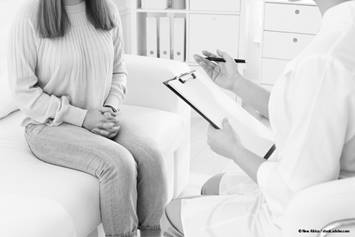Trichomonas
Trichomonas is a sexually transmitted infection (STI). Anyone who is sexually active has a chance of getting trichomonas.
What Is Trichomonas?
Trichomonas (trik-uh-moh-niss), or “trich,” is a sexually transmitted infection (STI) caused by the germ called Trichomonas vaginalis. Anyone that is sexually active is at risk of getting trichomonas. Those who have had more than one sexual partner are at a higher risk of getting infected. Most people do not have symptoms or know they are infected. They can give the infection to others without knowing it. Any vaginal contact between genitalia (penis or vagina) can pass the parasite from one person to another.
How Trichomonas Spreads
- vaginal sex
- contact between genitals
Severe Trichomonas
If treated early, the infection can be cured. If not treated, it can cause severe damage.
- For those born female, severe trichomonas could lead to pelvic inflammatory disease (PID). PID occurs when the infection spreads to the uterus, fallopian tubes, and/or ovaries. This can make you sterile (unable to get pregnant) and cause long-term pelvic pain.
- For those born male, trichomonas can cause an irritation of the urethra (urinary tube). If not treated, it can spread to the epididymis. This is where sperm is stored.
What Are the Signs and Symptoms of Trichomonas?
You can have trichomonas without having symptoms. Possible symptoms are:
- pain or burning when you urinate (pee)
- discharge from the throat or rectum
- male at birth – fever, mucus coming out of the penis, swollen scrotum, or pain around the bladder, or groin
- female at birth – red, itchy, or irritated genitals, mucus coming out of the vagina, fever, chills, vomiting, pain in the belly, pain with sex or unusual menstrual bleeding
How Is Trichomonas Diagnosed?
See your health care provider if you think you have trichomonas or have had sex with someone that you know has trichomonas. See your provider even if you do not have symptoms. You need to be tested for the infection.
- Tell your health care provider if there is any chance you may be pregnant.
- Your provider will use one or all of the following tests based on your symptoms:
- urine sample
- vaginal swab
How Is Trichomonas Treated?
- Your health care provider will prescribe antibiotic medicine if you have trichomonas. For the infection to completely go away, you must take all of the medicine.
- Wait for 1 week after you and your partner(s) are treated before having sex. During the first 7 days, you can still spread the infection.
Treatment for Partners
- You and your partner(s) must be treated. Treatment not only protects your sexual partner(s), but it also keeps you from getting infected again.
- If you do not think your partner(s) will get treated on their own, tell your health care provider. They may be able to write a prescription for your partner’s treatment. This is called expedited partner therapy (EPT).
- In the Columbus area, your partner(s) can be treated for free at the Columbus City Health Department, 240 Parsons Avenue, Columbus, Ohio 43215. You can call there at (614) 645-7417. If you live outside of Columbus, call your local health department.
Preventing Future Infection
Abstinence (not having sex) is the best way to avoid other STIs and HIV. If you do have sex, these things might help prevent the spread of STIs:
- Limit your number of sexual partners. Know your partner(s) and their sexual history.
- Use a condom every time you have sex, the whole time.
- Have an extra condom with you in case the one you are using breaks.
- Get re-tested in 3 months. People who are infected with trichomonas a once are more likely to get it again.
When to Call the Health Care Provider
Call your provider if you have any of these symptoms:
- nausea or vomiting
- skin rash or hives
- fatigue
- dark colored urine
- pain during sex
- swollen or tingling hands or feet
Follow-up
- You and your partner(s) must be treated and have a follow-up health care visit if the symptoms do not go away.
- Come back for ALL follow-up appointments.
- Get re-tested in 3 months to ensure the infection doesn’t return.
More Information
If you have any questions, call the Adolescent Medicine Clinic at (614) 722-2450. You can also call the National STD Hotline at (800) 232-4636, 8 a.m. to 11 p.m., Monday through Friday, or you can get information at http://www.ashastd.org.



